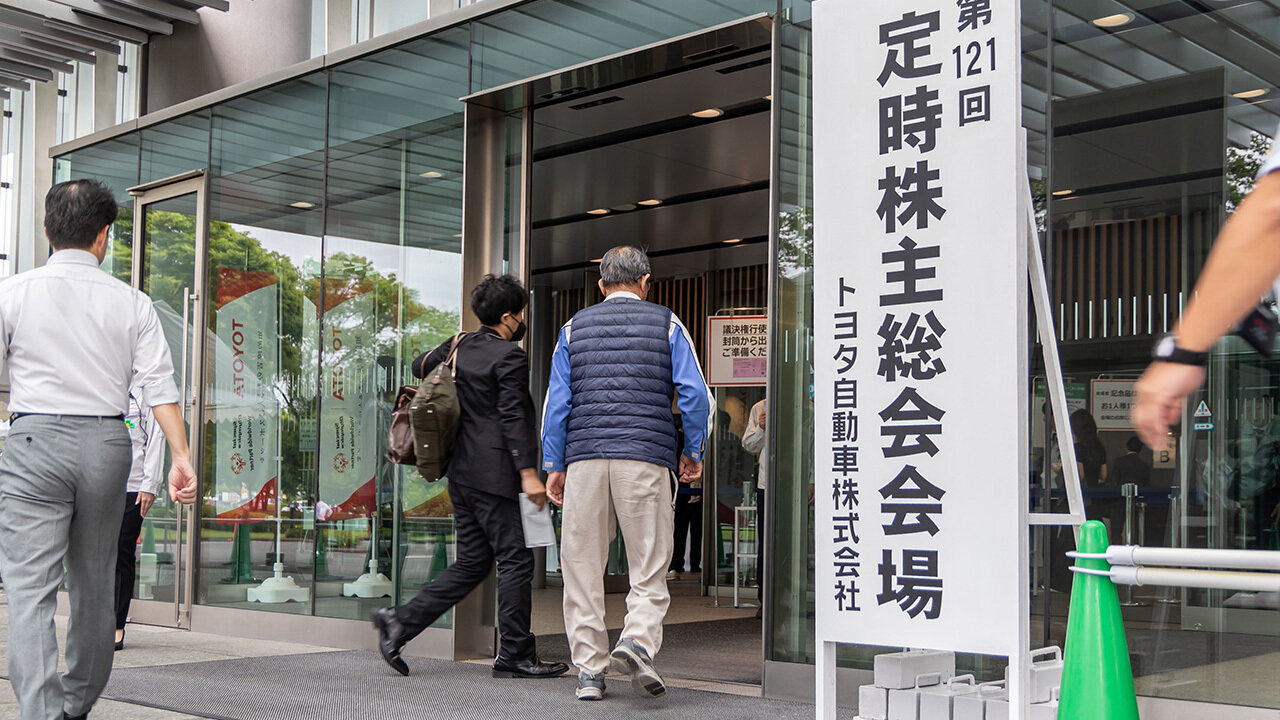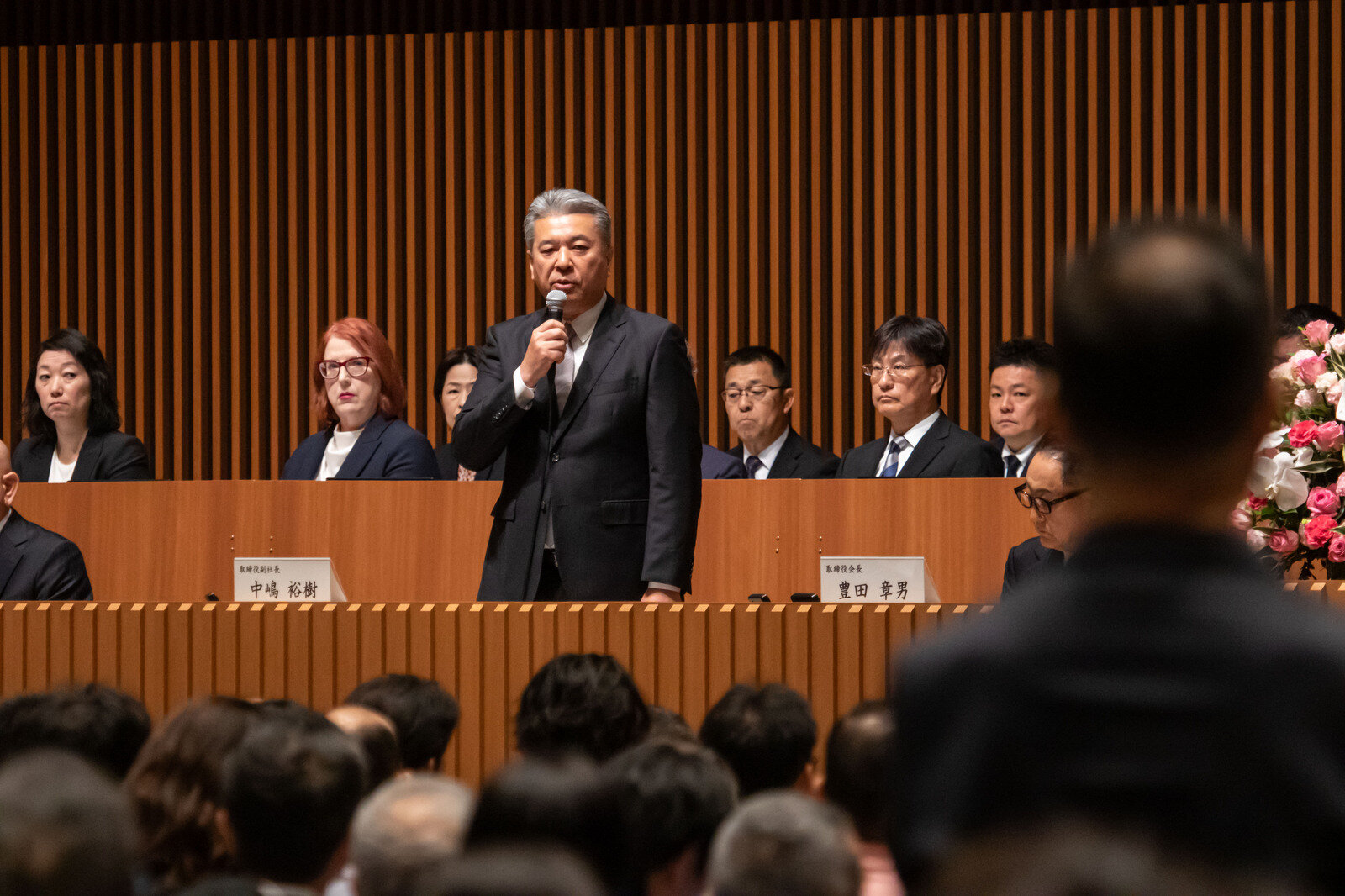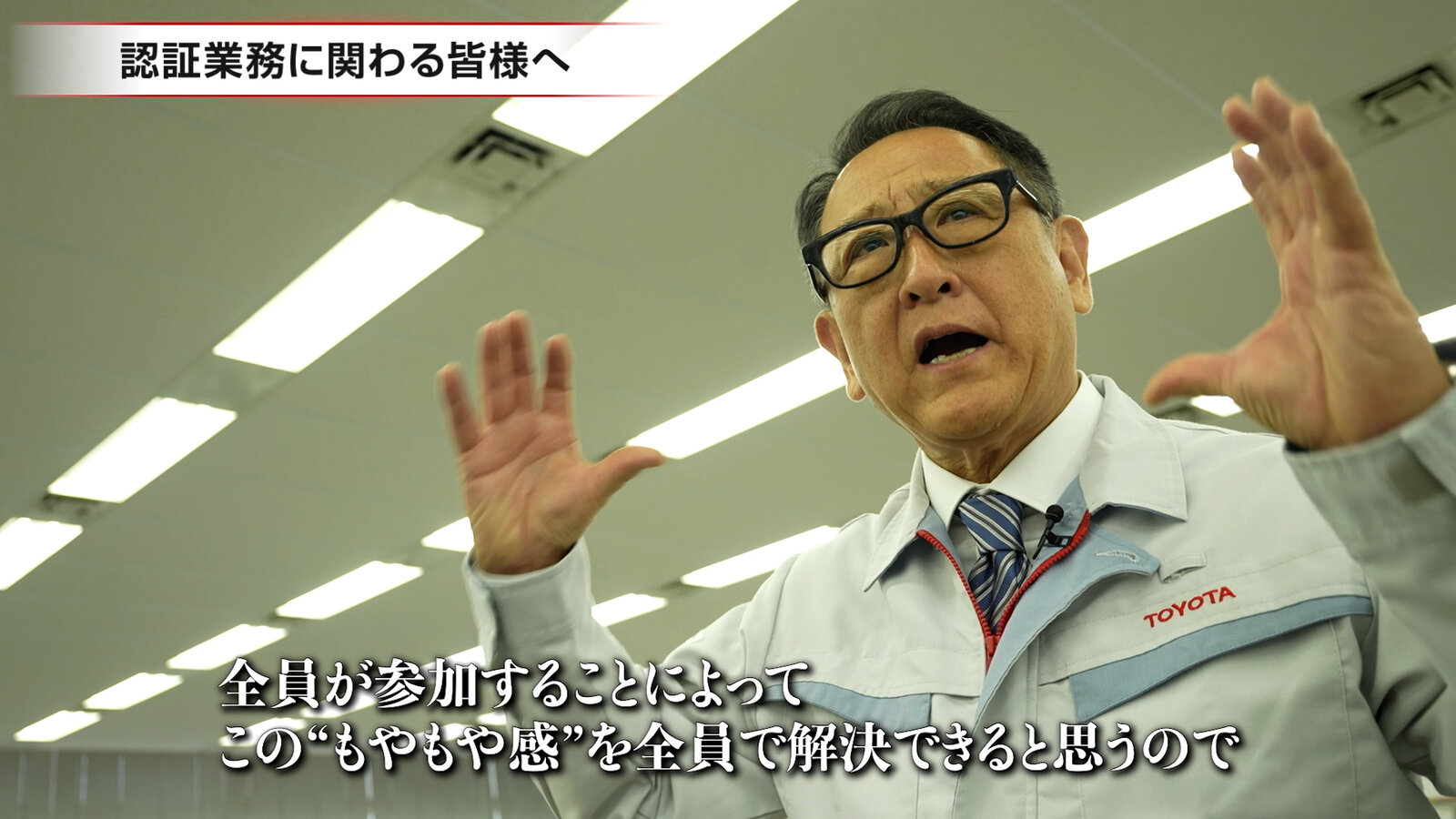
From certification issues to long delivery times, many shareholders are anxious about problems affecting not just Toyota, but the entire auto industry. Vice Presidents Hiroki Nakajima and Yoichi Miyazaki responded to questions about cultural reforms and collaboration with dealerships.

At this year’s general meeting, shareholders concerned about certification issues, long delivery times, and other difficulties sought answers regarding Toyota’s approach.
On May 30, some two weeks before the General Shareholders' Meeting, Toyota submitted to the Ministry of Land, Infrastructure, Transport and Tourism (MLIT) its third quarterly progress report on preventing future issues related to model certification applications.
The report notes Toyota’s ongoing efforts, centered on the three pillars of “strengthening foundations,” “monozukuri,” and “personnel development,” including dialogue between management and genba employees as well as the allocation of human and material resources.
As Toyota deals with the certification issues, is the company making progress in reforming its genba culture? Executive Vice President Hiroki Nakajima answered this question from a shareholder.
Sensing irregularities in the genba
Vice President Nakajima

We have enacted various visible measures, but for us the most important thing is cultural reforms.
In this regard, Chairman Akio Toyoda is taking the lead, personally visiting the genba to observe each step of the process and clarify the problems.
At Toyota, we organize TPS (Toyota Production System) Jishuken sessions, which bring together various related companies beyond Toyota Motor Corporation.
These study sessions are held monthly, and when I visited one recently, I was genuinely moved to see everyone in their different uniforms, putting their heads together to solve their problems and concerns.
However, the truth is that it also highlighted how much we had neglected visiting the genba.
I had assumed I could just go to the genba and ask, “Is everything okay?” But if the vice president shows up on the factory floor, a big guy like me, I’m sure it’s not easy to speak openly, no matter what I say.
Instead, if you drop by regularly, you come to notice irregularities in the genba—a tool not in its usual place, for example, or a section that is normally neat and tidy not following through on the 4S’s (Sort, Set in Order, Shine, Standardize). We can properly identify these everyday changes and use our sensors to spot outliers.
Unless that happens, I honestly feel that any talk of listening to the genba will end up as mere lip service.
Most importantly, President Sato and the other members here today regularly visit the genba to ensure there are no problems, and check where problems might arise. In making these visits, one by one, we also hope to improve communication with the genba. Admittedly, this is still a work in progress. We recognize that cultural reform is a never-ending process.
With regard to the certification issues, in June 2024, Toyota announced that it had conducted tests using methods that differed from the standards set by national authorities. Two weeks later, President Koji Sato again explained the circumstances at the company’s General Shareholders’ Meeting. On July 31, MLIT issued a corrective order, and on August 9, Toyota submitted its measures for preventing recurrence.
As for the TPS Jishuken mentioned by Vice President Nakajima, we previously showcased this initiative in detail on Toyota Times News: “Ongoing Certification Issues: What Happened in the Toyota Group and What is Being Done Now?” In our report, Chairman Toyoda shares the following words with employees engaged in certification-related work.
Chairman Toyoda

When everyone joins in (certification-related kaizen), we can solve this frustration together, so please take an interest.
Wanting to learn is the important part. Trying to learn and taking an interest are the most important parts of your work.
Cultural reforms are a deeply-rooted issue that have also been on the agenda at Toyota’s labor-management discussions. The company’s frontline workers and leadership are united in pursuing improvements.

